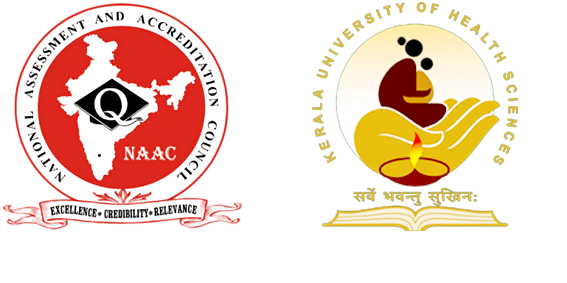At St.Joseph's College of Pharmacy, B. Pharm programme is an approach to reach new horizons in pharmacy profession. The programme started with the concept of Total Quality Management (TQM) to provide the right ambience for professional education. Here traditional teaching methods such as lectures and seminars are complemented by study projects, regular tutorials, practical assignments and interactive educational sessions, clear focus on application and use of knowledge in practical settings, Problem-Based Learning (PBL), adequate pedagogical training, Computer- Aided Learning (CAL) & ethics management etc. As per the requirements of Pharmacy Council of India (PCI) all laboratories are well equipped with ultra- modern scientific instruments and equipments for analysis and research. In addition to print materials the library contains wide range of cyber information in the form of e-journals and texts.
The College routinely organizes technical sessions for students on different scientific topics of their syllabus so that all the students should be benefited from these knowledge sharing academic activities. Our programme offers an individualized and supportive environment for professional development and education.
Career and Higher Studies after B.Pharm
The candidates can opt their jobs in drug manufacturing companies, research field, Pharmacies, Hospitals and teaching (D.Pharm). Some other jobs available for the B.Pharm graduates are Drugs inspector, Analyst, medical representative, They can be placed Indian Railways, Indian Army etc. The graduates will get job openings in Government as well as private sector in India and abroad. A B.Pharm graduate can become an entrepreneur.
After completing the B.Pharm program, the aspirants can go for a Post graduation in the related field. The best options are M.Pharm in different specializations and MBA.
B.Pharm - The Course.
The college offers eight Semesters B.Pharm. course with advanced class rooms and teaching aids, laboratories and library with cyber support. The students are guided by well experienced faculty members.
Eligibility for Admission
Candidates who have passed Higher Secondary Examination, Kerala or examinations recognized as equivalent thereto with 50% marks in Biology/Mathematics separately and 50% marks in Physics, Chemistry and Biology/Mathematics put together are eligible. For more details regarding the course. Please visit : www.kuhs.ac.in
Duration
The Course will be extended over a period of eight semesters (4 years) which includes industrial tour and project work.
B.PHARM (Lateral Entry)
A six semesters B.Pharm. course with limited seats for D.Pharm. holders is also conducted by the college.
Eligibility for Admission
A candidate who has passed the Diploma in Pharmacy course of Educational Regulations 1991 under Pharmacy Act 1948 from an institution approved by the Pharmacy Council of India with a minimum of 50% marks in the final year examinations will be eligible. The candidate shall fulfill eligibility before the last date of application. For more details regarding the course. Please visit : www.kuhs.ac.in
How to Apply ?
The candidates shall apply online for the Pharm.D / B.Pharm / M.Pharm course. Refer admission notification in the website at the time of admission.
Programme Outcomes (POs)
PO1: Pharmacy Knowledge: Possess knowledge and comprehension of the core and basic knowledge associated with the profession of pharmacy, including biomedical sciences; pharmaceutical sciences; behavioral, social, and administrative pharmacy sciences; and manufacturing practices.
PO2: Planning Abilities: Demonstrate effective planning abilities including time management, resource management, delegation skills and organizational skills. Develop and implement plans and organize work to meet deadlines.
PO3: Problem analysis: Utilize the principles of scientific enquiry, thinking analytically, clearly and critically, while solving problems and making decisions during daily practice. Find, analyze, evaluate and apply information systematically and shall make defensible decisions.
PO4: Modern tool usage: Learn, select, and apply appropriate methods and procedures, resources, and modern pharmacy-related computing tools with an understanding of the limitations.
PO5: Leadership skills: Understand and consider the human reaction to change, motivation issues, leadership and team-building when planning changes required for fulfillment of practice, professional and societal responsibilities. Assume participatory roles as responsible citizens or leadership roles when appropriate to facilitate improvement in health and well-being.
PO6: Professional Identity: Understand, analyze and communicate the value of their professional roles in society (e.g. health care professionals, promoters of health, educators, managers, employers, employees).
PO7: Pharmaceutical Ethics: Honour personal values and apply ethical principles in professional and social contexts. Demonstrate behavior that recognizes cultural and personal variability in values, communication and lifestyles. Use ethical frameworks; apply ethical principles while making decisions and take responsibility for the outcomes associated with the decisions.
PO8: Communication: Communicate effectively with the pharmacy community and with society at large, such as, being able to comprehend and write effective reports, make effective presentations and documentation, and give and receive clear instructions.
PO9: The Pharmacist and society: Apply reasoning informed by the contextual knowledge to assess societal, health, safety and legal issues and the consequent responsibilities relevant to the professional pharmacy practice.
PO10: Environment and sustainability: Understand the impact of the professional pharmacy solutions in societal and environmental contexts, and demonstrate the knowledge of, and need for sustainable development.
PO11: Life-long learning: Recognize the need for, and have the preparation and ability to engage in independent and life-long learning in the broadest context of technological change. Self-assess and use feedback effectively from others to identify learning needs and to satisfy these needs on an ongoing basis.


